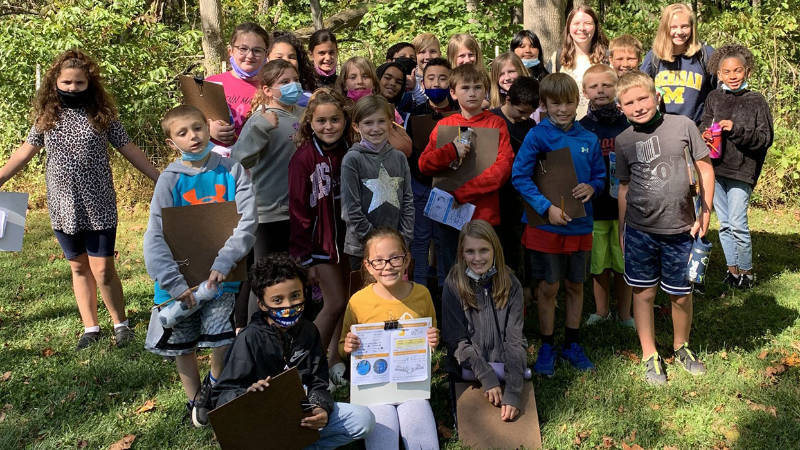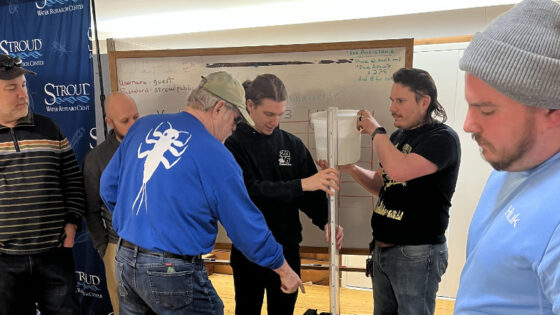
Help your students understand watershed concepts and make a positive impact on their local environment with the free standards-aligned Shared Waters curriculum.
Designed for students in grades 3 through 6, the 10-lesson curriculum is classroom-tested and incorporates many Stroud Water Research Center resources, including the WikiWatershed Toolkit, Leaf Pack Network, Model My Watershed, and Runoff Simulation.
Culminating in an action project, the lessons cover topics such as:
- Understanding the water cycle and the concept of watersheds.
- Conducting chemical analyses of natural water bodies.
- Identifying aquatic macroinvertebrates as indicators of water quality.
- Exploring the effects of human activities on watersheds.
- Developing and implementing action plans to address environmental issues.
The lessons are easy to adapt to any geography and guide educators through the implementation of Meaningful Watershed Educational Experiences, which teach students about local watershed issues and how their actions impact the overall health of their watershed.
The Shared Waters curriculum meets Next Generation Science Standards and multiple state standards, with an emphasis on environmental literacy and sustainability. Shared Waters is a NOAA-funded project led by Millersville University of Pennsylvania, Virginia Wesleyan University, Penn Manor School District, and Norfolk Collegiate School. In addition to the watershed curriculum, Shared Waters offers hands-on science kits and professional development.
Watch this video to learn more about the curricula and get inspired!



